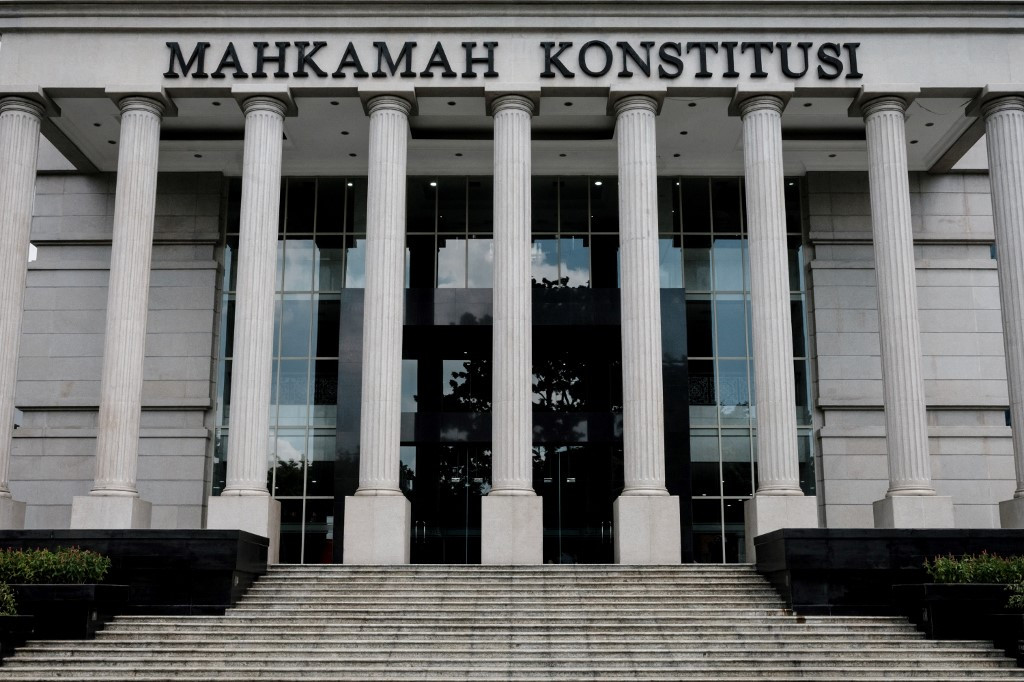
Independent Report – Constitutional Court’s reputation in Indonesia has shown signs of improvement, according to a recent survey. This comes after a period of declining public approval due to its controversial ruling on the requirements for presidential and vice-presidential candidates. The court’s approval rating has seen a notable increase, signaling a positive shift in the public’s perception of its role and decisions. This newfound support highlights the possibility of a rebound in the court’s image, even in the face of prior criticism.
The Litbang Kompas survey revealed that 69.1 percent of respondents held a favorable view of the Constitutional Court. This is a significant rise from previous surveys in September and June 2024, where approval stood at 63.6 percent and 61.4 percent, respectively. Conducted from January 4 to January 10, 2025, the survey was based on interviews with 1,000 people nationwide, and it has a margin of error of 3.1 percent at a 95 percent confidence level.
The improvement in public perception follows a period of scrutiny, particularly after the court’s controversial decision in October 2023. The ruling allowed former president Joko “Jokowi” Widodo’s son, Gibran Rakabuming Raka, to run for the vice-presidency alongside Prabowo Subianto in the 2024 election. Many viewed the decision as politically motivated, and it led to strong opposition from various public figures, including academics and legal experts. Despite the criticism, recent trends indicate that the Constitutional Court is beginning to regain favor among the general public.
“Read about: Predictions for Indonesia’s Political Economy in 2025”
Despite the improvements in its approval rating, the Constitutional Court still ranks among the bottom five of the ten top institutions mentioned in the survey. With an approval rating of 69 percent, it stands above the National Police (65.7 percent), the House of Representatives (67 percent), and the Supreme Court (69 percent). This positioning suggests that while the court’s public image is improving, it is still behind other institutions that enjoy higher trust from the public.
The Constitutional Court’s reputation suffered significantly after the controversial ruling on presidential candidate requirements. Many legal experts and members of the public believed the decision was influenced by political motives, especially as it paved the way for Gibran Rakabuming Raka to run in the 2024 election. Legal scholar Zainal Arifin Mochtar from Gadjah Mada University claimed the ruling damaged the court’s credibility and trustworthiness.
However, the recent survey suggests that the Constitutional Court has taken steps to rebuild its reputation. Although not yet fully recovered, the improvements in approval ratings indicate that the court’s efforts to restore its image are beginning to bear fruit. Continued transparency and commitment to upholding the law will be key to further enhancing its standing with the public.
“Read more: Yemen’s Houthis Release Red Sea Cargo Ship Crew After 14-Month Ordeal”
The survey also highlighted positive trends for other state institutions, such as the General Elections Commission (KPU) and the Election Supervisory Body (Bawaslu). Both institutions experienced a significant rise in public approval, with KPU’s rating increasing from 71.7 percent in September 2024 to 80.3 percent in January 2025, and Bawaslu’s approval rising from 75.1 percent to 81.6 percent during the same period. These gains are largely attributed to the successful conduct of the 2024 elections, which were widely seen as free, fair, and transparent.
The Indonesian Military (TNI) topped the survey with an approval rating of 94.2 percent, indicating widespread trust and support among the public for the institution.
While the Constitutional Court’s public image is on the rise, its standing in comparison to other institutions suggests there is still room for improvement. The court’s future decisions will play a crucial role in shaping its long-term reputation. By continuing to make impartial and legally sound rulings, the Constitutional Court has the opportunity to further rebuild its public image and solidify its position as a trusted institution.
The improvement in the Constitutional Court’s public reputation, as shown in the survey, underscores the dynamic nature of public opinion and the importance of maintaining public trust through transparency and accountability. As time progresses, the court’s actions will determine whether this positive trend continues.